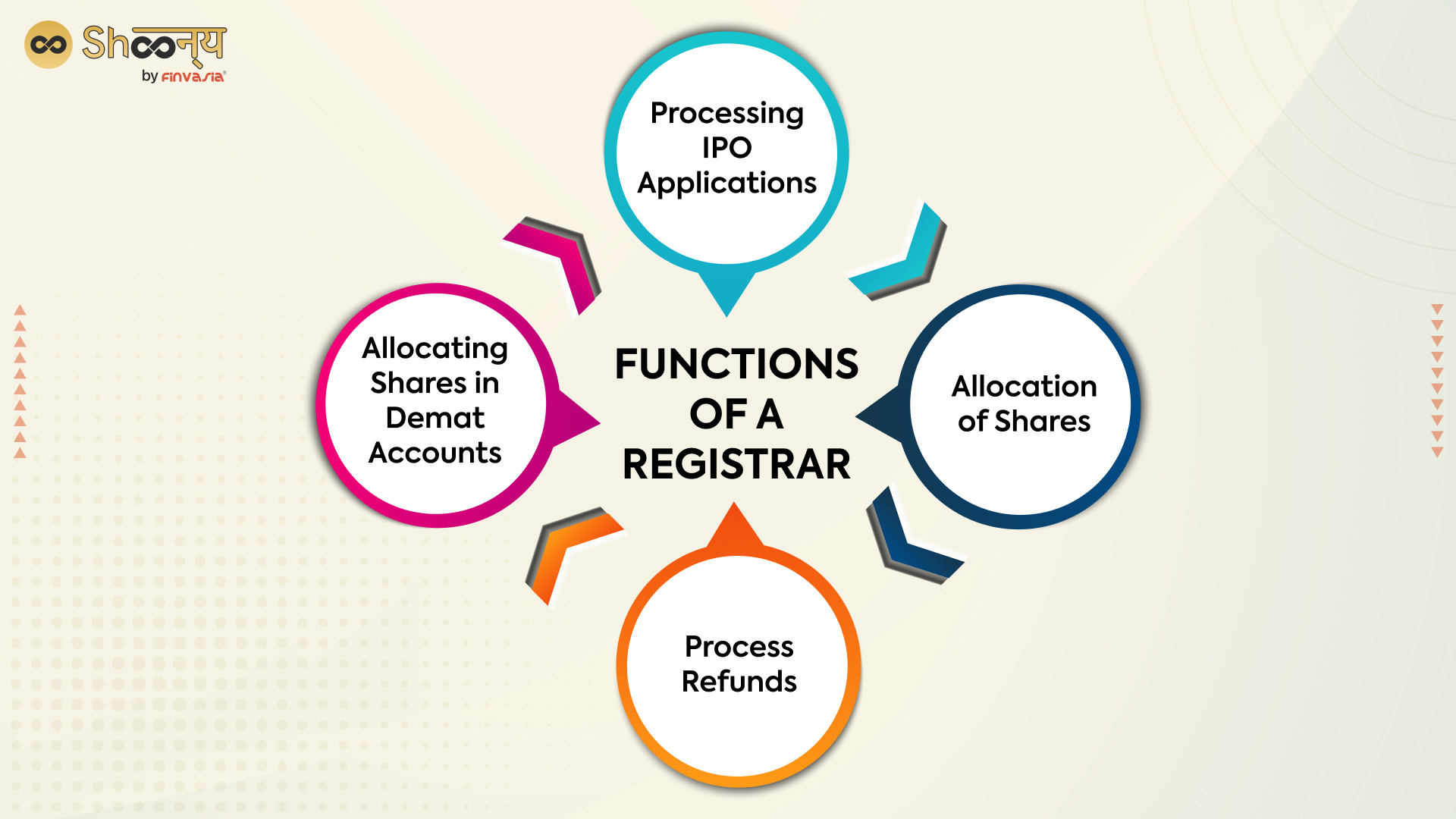Role of Registrars and Allotment of Shares in an IPO

When a company goes public and holds an IPO, it undergoes many changes and various processes and involves a lot of people. IPO registrars are one of them.
So, let’s look at the role of the registrar in an IPO, how they function, and their importance.
Who is a Registrar?
In general terms, a registrar is someone who keeps the register/records/books of anything. Therefore, a company hires a registrar to keep a record of its registers after going public.
What does a registrar do in an IPO?
- Processing IPO Applications
After the IPO begins, there are various applications for the company from all kinds of investors. The registrar goes through all these applications and processes them for future procedures.
2. Allocation of Shares
They allocate the shares to the applicants based on SEBI guidelines. This involves a longer process.
When we buy shares in an IPO, one can’t buy some shares based on their choice. This is because every company decides on a number of lots, and every lot has a fixed number of shares. So one can only buy in lots.
If one share costs Rs. 1000 and there are four shares in one lot. One lot would be priced at 4*1000 = 4000.

Oversubscription of shares
If a company receives more applications than its offered shares, it is called an oversubscription.
When something like this happens, the registrar must allocate the shares according to company rules. They usually assign the minimum number of shares to all the applicants for the fairness of the IPO.
For example, there are only 200 shares available in the lot size of 4, i.e., 50 lots. However, the company receives applications from over 100 lots. In this case, an investor who has applied for three lots would also be given one lot, and the one who applied for one lot would also be given one.
This comprises the foremost duty of a registrar.
3. Process Refunds
In case of oversubscription, the applicants receive their refunds. So in the above example, if someone had applied for three lots and received just one, they would be returned the amount of two lots. Registrars process these refunds through ECS or cheques.
4. Allocating shares in Demat accounts
After the allotment of shares, registrars allocate the shares to the shareholder’s Demat account.
In a Nutshell
Registrars are the allocators of shares. Similarly, it depends on the registrar if you’d receive your desired number of shares or not. If you are interested in IPOs and want to buy shares and trade, download the Shoonya App today.
We are a zero-commission trading platform that provides you with stock market trading and helps you make wise investment choices through our advanced comparability tools. So open a Demat account on Shoonya today and start investing.








